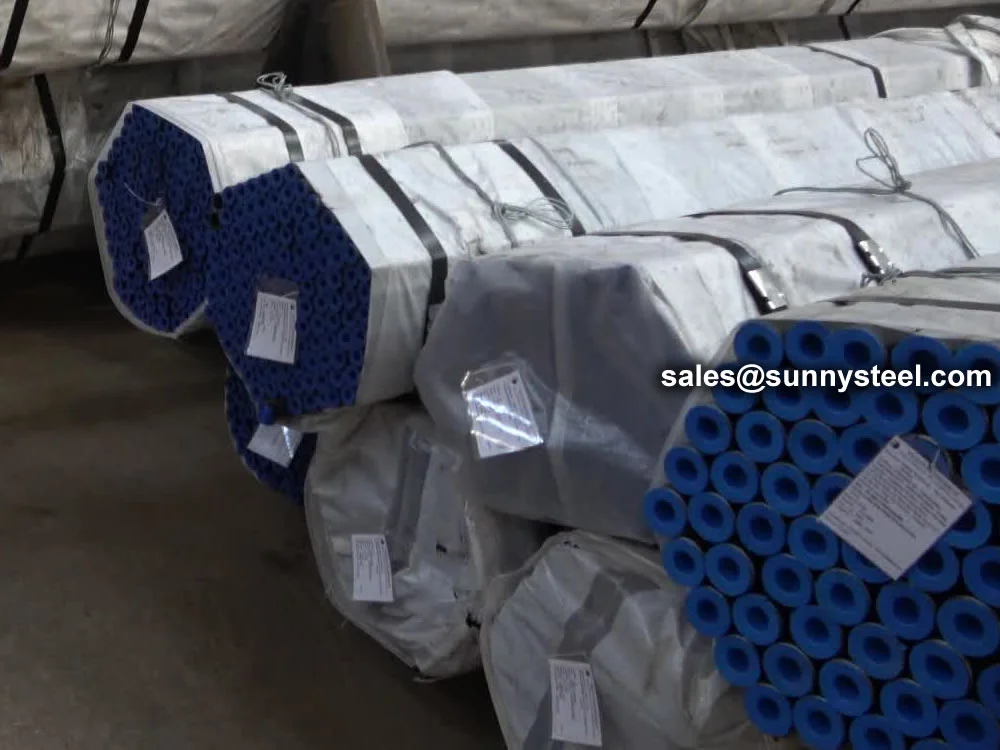
Alloy Steel Tube For Boilers, Superheaters, And Heat Exchangers
Asme sa213 t12 seamless tube offers high-temperature strength and corrosion resistance for boilers and heat exchangers in industrial piping systems.
Alloy Steel Tube For Boilers, Superheaters, And Heat Exchangers
Asme sa213 t12 seamless tube offers high-temperature strength and corrosion resistance for boilers and heat exchangers in industrial piping systems.
ASME SA213 T12 Seamless Tube is a high-performance alloy steel tube engineered for superior high-temperature strength and corrosion resistance in demanding applications. Conforming to the ASME SA213/ASTM A213 specification, this Chrome Moly Tube is designed with a composition of 0.80-1.25% chromium and 0.44-0.65% molybdenum, making it ideal for boiler pipeline protection in power plants, refineries, petrochemical plants, and other industrial piping systems. Its seamless construction ensures exceptional durability and reliability under high-temperature (up to 550°C) and high-pressure conditions.
The ASME SA213 T12 Seamless Tube is manufactured through hot-rolling or cold-drawing processes, followed by heat treatments such as normalizing at 900-960°C and tempering at 675-760°C to optimize mechanical properties. The chromium content enhances oxidation resistance and high-temperature strength, while molybdenum improves creep resistance, hardenability, and wear resistance, making it suitable for boiler pipeline protection. Available in sizes from 1/8” to 5” OD (3.2mm to 127mm), with wall thicknesses ranging from 0.4mm to 12.7mm, and lengths up to 13.5 meters or customized, it meets diverse project requirements.
The Seamless Alloy Tubes undergo rigorous testing, including tensile, flattening, flaring, hardness, and hydrostatic tests, to ensure compliance with ASME SA213 standards. With a minimum tensile strength of 415 MPa and yield strength of 220 MPa, the T12 tube offers robust resistance to thermal stress and pressure, making it ideal for handling corrosive fluids and gases in boiler, superheater, and heat exchanger applications. Surface treatments such as galvanizing, FBE, or 3LPE coatings further enhance corrosion resistance, while plain or beveled ends facilitate seamless integration into industrial piping systems.
Compared to other grades like T11 or T22, the ASME SA213 T12 Seamless Tube offers a balanced combination of high-temperature performance and cost-effectiveness, making it a preferred choice for power generation and petrochemical applications. Its compatibility with fittings and flanges under ASME SA234 WP12 standards ensures seamless integration into complex piping networks. The tube’s ability to resist hydrogen sulfide corrosion and stress corrosion cracking makes it ideal for high-pressure industrial piping systems requiring reliable boiler pipeline protection.
Engineered to address critical challenges like pipeline wear, corrosion, and thermal stress, the ASME SA213 T12 Seamless Tube delivers unmatched performance in high-throughput industrial systems. Its advanced alloy composition and seamless construction make it a reliable choice for engineers seeking durable industrial piping solutions for extreme environments, ensuring safety, longevity, and efficiency in Chrome Moly Tube applications.
Withstands temperatures up to 550°C for boilers and superheaters.
Chromium and molybdenum ensure resistance to oxidation and corrosion.
Molybdenum enhances durability in high-pressure systems.
Uniform construction ensures reliability in high-pressure applications.
Long lifespan reduces maintenance and replacement costs.
Ideal for boilers, superheaters, and petrochemical systems.
| Feature | ASME SA213 T12 | ASME SA213 T11 | ASTM A335 P22 |
|---|---|---|---|
| Material Type | Alloy Steel | Alloy Steel | Alloy Steel |
| Chromium Content | 0.80-1.25% | 1.00-1.50% | 1.90-2.60% |
| Molybdenum Content | 0.44-0.65% | 0.44-0.65% | 0.87-1.13% |
| Temperature Range | High (up to 550°C) | High (up to 550°C) | High (up to 600°C) |
| Corrosion Resistance | Good (With coatings) | Good (With coatings) | Good (With coatings) |
| Applications | Boilers, Superheaters | Boilers, Heat Exchangers | Boilers, Refineries |
| Tensile Strength (MPa) | 415 (min) | 415 (min) | 415 (min) |
| Yield Strength (MPa) | 220 (min) | 205 (min) | 205 (min) |
| Key Advantage | Balanced high-temp strength | Cost-effective high-temp | Enhanced creep strength |
| Element | Composition (%) |
|---|---|
| Carbon (C) | 0.05-0.15 |
| Manganese (Mn) | 0.30-0.61 |
| Phosphorus (P) | ≤0.025 |
| Sulfur (S) | ≤0.025 |
| Silicon (Si) | ≤0.50 |
| Chromium (Cr) | 0.80-1.25 |
| Molybdenum (Mo) | 0.44-0.65 |
| Property | Value |
|---|---|
| Tensile Strength, min (MPa) | 415 |
| Yield Strength, min (MPa) | 220 |
| Elongation, min (%) | 30 |
| Hardness, max (HBW) | 163 |
| Spec | Grade | O.D. (mm) | W.T. (mm) | Pcs | Weight (T) | Length (m) |
|---|---|---|---|---|---|---|
| SA213 | T12 | 28.00 | 7.00 | 193 | 5.602 | 8–10 |
| SA213 | T12 | 38.00 | 6.50 | 12 | 0.545 | 8.85 |
| SA213 | T12 | 51.00 | 8.50 | 26 | 2.000 | 8–10 |
| SA213 | T12 | 51.00 | 9.00 | 86 | 6.457 | 5–7 |
| SA213 | T12 | 63.50 | 9.00 | 20 | 1.930 | 5–7 |
| SA213 | T12 | 63.50 | 10.00 | 18 | 2.102 | 8.5 |
| SA213 | T12 | 76.00 | 7.00 | 32 | 2.720 | 6–8 |
| SA213 | T12 | 89.00 | 6.50 | 36 | 2.580 | 4.5–9 |
| SA213 | T12 | 88.90 | 7.62 | 56 | 5.936 | 6.95 |
| SA213 | T12 | 89.00 | 9.00 | 60 | 6.302 | 6 |
| SA213 | T12 | 168.00 | 10.00 | 5 | 1.570 | 8–10 |
| SA213 | T12 | 168.00 | 14.00 | 27 | 6.500 | 5–7 |
| SA213 | T12 | 219.00 | 12.00 | 16 | 5.930 | 8.5 |
| SA213 | T12 | 219.00 | 23.00 | 32 | 21.500 | 6–8 |
| SA213 | T12 | 219.00 | 30.00 | 18 | 15.000 | 6–9 |
| SA213 | T12 | 325.00 | 11.00 | 1 | 0.510 | 6–8 |
| SA213 | T12 | 325.00 | 16.00 | 20 | 15.000 | 5–7 |
| SA213 | T12 | 89.00 | 20.00 | 40 | 7.501 | 6 |
| SA213 | T12 | 101.60 | 12.00 | 24 | 7.116 | 6 |
| SA213 | T12 | 102.00 | 7.50 | 12 | 1.920 | 9.42 |
| SA213 | T12 | 108.00 | 5.00 | 35 | 4.450 | 6–10 |
| SA213 | T12 | 108.00 | 6.00 | 27 | 4.050 | 6–8 |
| SA213 | T12 | 108.00 | 8.00 | 1 | 8.500 | 6–10 |
| SA213 | T12 | 108.00 | 10.00 | 4 | 1.186 | 6–8 |
| SA213 | T12 | 108.00 | 12.00 | 21 | 5.159 | 6–10 |
| SA213 | T12 | 159.00 | 6.00 | 16 | 4.393 | 6–8 |
| SA213 | T12 | 159.00 | 8.00 | 15 | 4.574 | 10 |
| SA213 | T12 | 273.00 | 8.00 | 8 | 2.530 | 6–10 |
| SA213 | T12 | 273.00 | 12.00 | 1 | 0.460 | 6–8 |
| SA213 | T12 | 430.00 | 16.00 | 1 | 0.990 | 6–8 |
| SA213 | T12 | 377.00 | 14.00 | 1 | 0.770 | 6–10 |
| SA213 | T12 | 457.00 | 20.00 | 2 | 2.600 | 6–8 |
| SA213 | T12 | 406.00 | 55.00 | 1 | 2.880 | 10 |
| SA213 | T12 | 508.00 | 12.00 | 1 | 0.890 | 5–7 |
Alloy steel pipes are categorized by both standards and grades, each designed for specific performance requirements and applications. Common standards include ASTM A335, A519, and A213, while grades like P5, P9, P11, P22, and P91 are frequently used within these standards.
| Standard | Detailed Grades | Main Applications |
|---|---|---|
| ASTM A335 / ASME SA335 | P1, P2, P5, P9, P11, P12, P15, P21, P22, P23, P24, P36, P91, P92, P122, P911 | High-temperature pressure systems: power plants, refineries, and chemical plants |
| ASTM A213 / ASME SA213 | T2, T5, T5b, T9, T11, T12, T17, T22, T23, T24, T91, T92, T122, T911 | Boiler tubes, superheaters, and heat exchangers |
| ASTM A519 | 4130, 4135, 4140, 4145, 4150, 1020, 1026, 1330, 8620 | Mechanical tubing, structural applications, automotive components |
| API 5L | A25, A, B, X42, X46, X52, X56, X60, X65, X70, X80, X100 | Oil and gas transmission pipelines (onshore and offshore) |
| EN 10216‑2 | 13CrMo4-5, 10CrMo9-10, 12CrMo19-5, X10CrMoVNb9-1, X11CrMo5, 14MoV6-3, X20CrMoV12-1 | European pressure vessels and high-temperature piping |
| GB / SH Standards | 15CrMoG, 12Cr1MoVG, 10CrMo910, 12CrMo, 1Cr5Mo, WB36, 10Cr9Mo1VNb (equiv. T91) | Petrochemical, power generation, high-pressure boilers in Chinese systems |
Alloy steel is made by combining carbon steel with one or several alloying elements, such as titanium, copper, chromium, aluminum, manganese, silicon, and nickel. This produces specific properties that are not found in standard carbon steel. Common alloy steel grades include 4130, 4140, 4340, and 8620 for their balance of characteristics like strength, toughness, machinability, and weldability.

Alloy steel pipes offer superior strength, temperature and corrosion resistance, making them ideal for demanding environments across energy, petrochemical, construction, and more.
Used extensively in drilling, subsea and onshore pipelines for crude oil, natural gas, and refined products due to high strength and corrosion resistance.
Ideal for transporting corrosive chemicals, high-pressure reactor feeds, and heat exchanger tubing where carbon steel fails.
Used in high-temp boiler tubes, superheaters, reheaters, and steam piping; withstands extreme temperatures and pressures efficiently.
Used as structural pipelines, piling tubes, and transport lines in high-rise buildings and bridges due to high structural strength.
Suitable for transporting liquefied gases and cold media, where toughness and strength must endure sub-zero temperatures.
Alloy steel pipes are fully recyclable and support energy-efficient systems, aligning with green standards in modern industry.
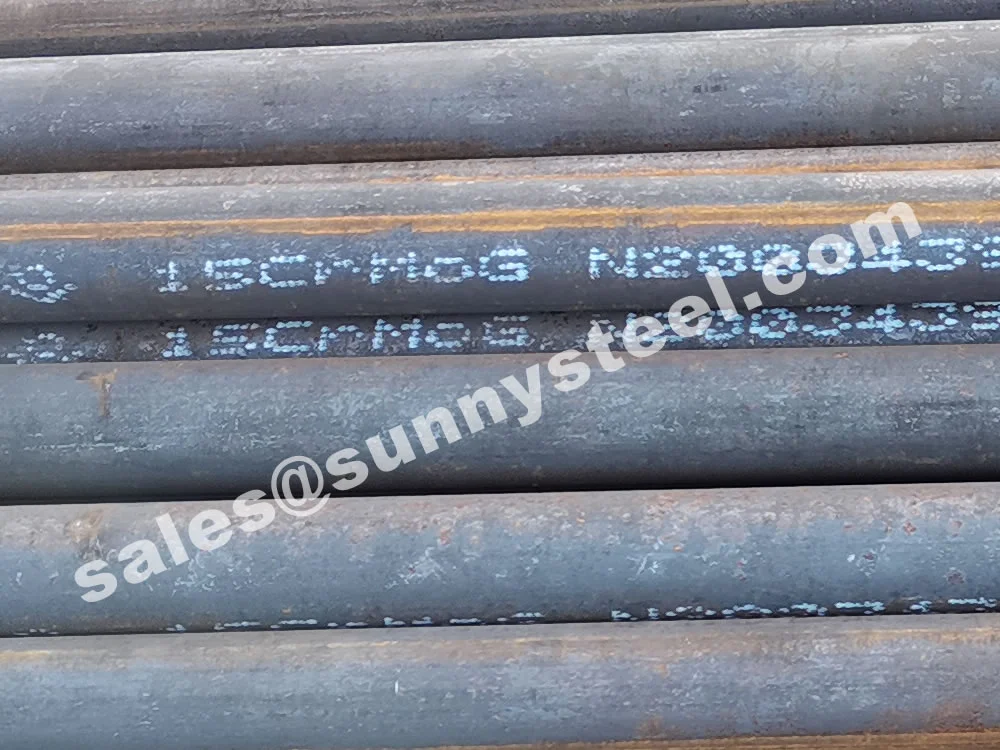
15crmog seamless pipe offers high-temperature stre...
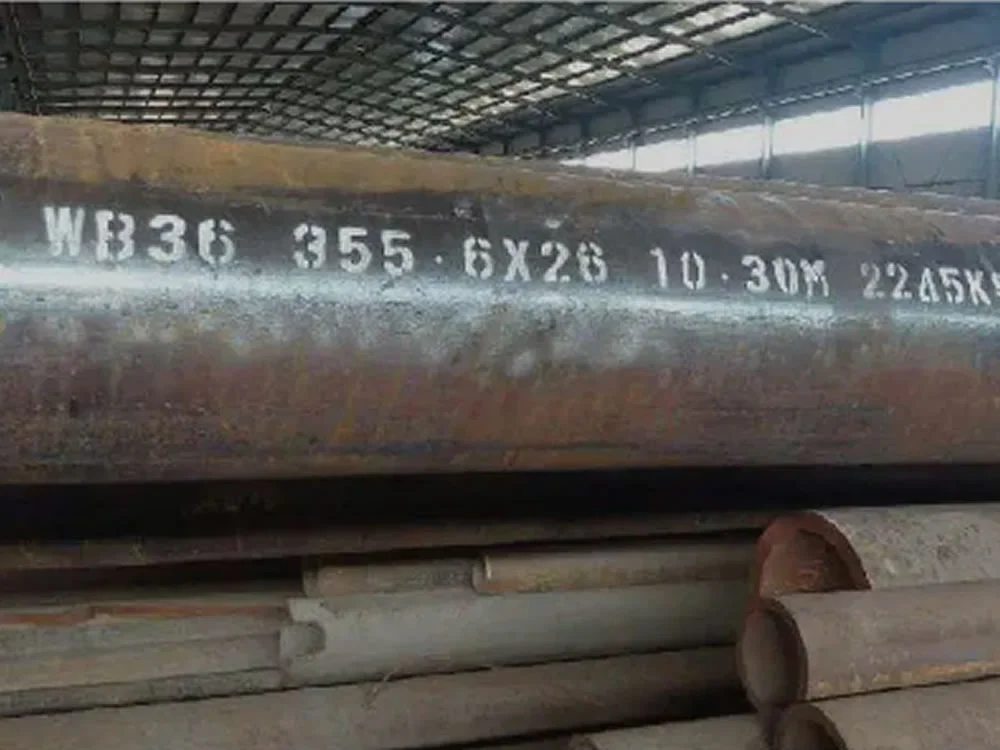
Wb36 seamless pipe offers high strength and creep ...
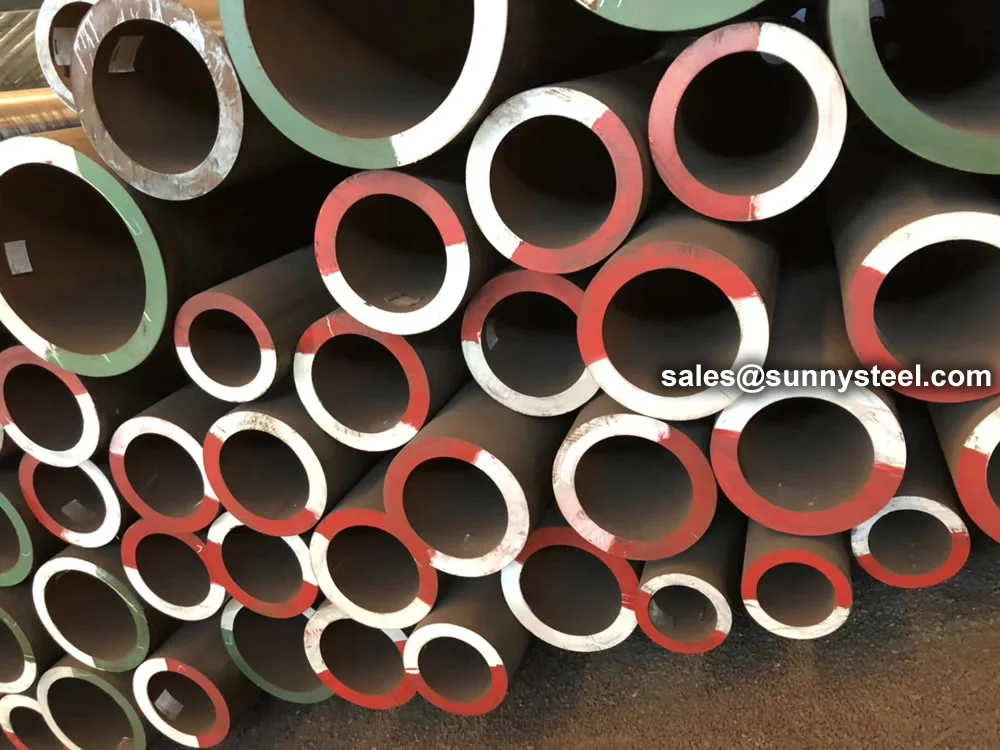
Astm a335 p9 seamless pipe offers high-temperature...
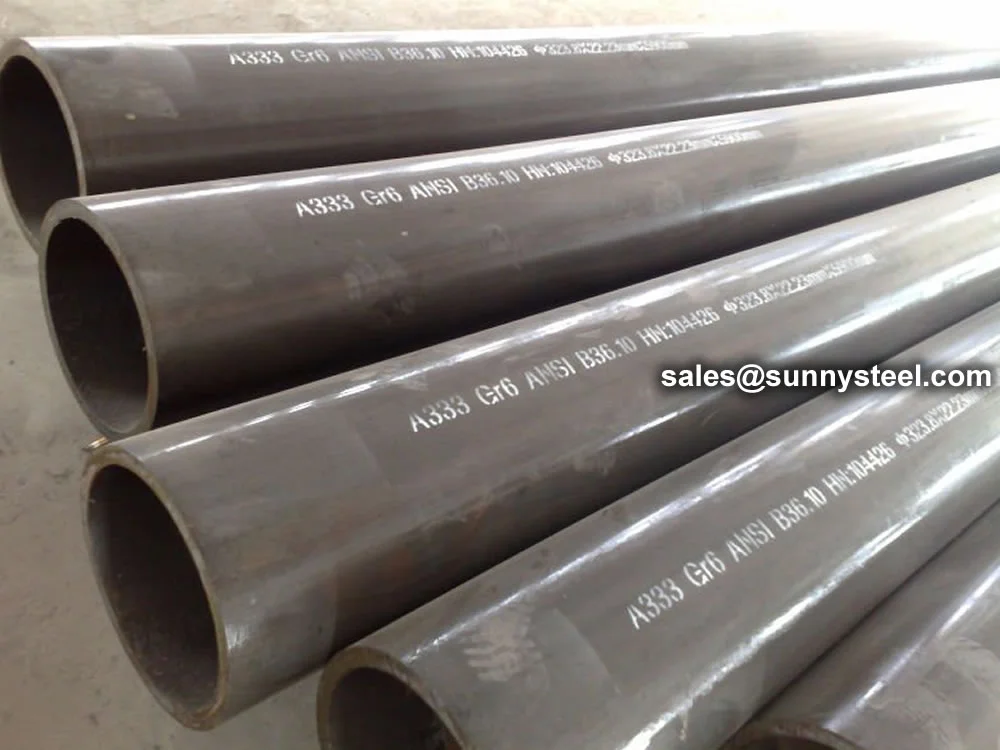
Astm a333 grade 6 seamless pipe offers low-tempera...
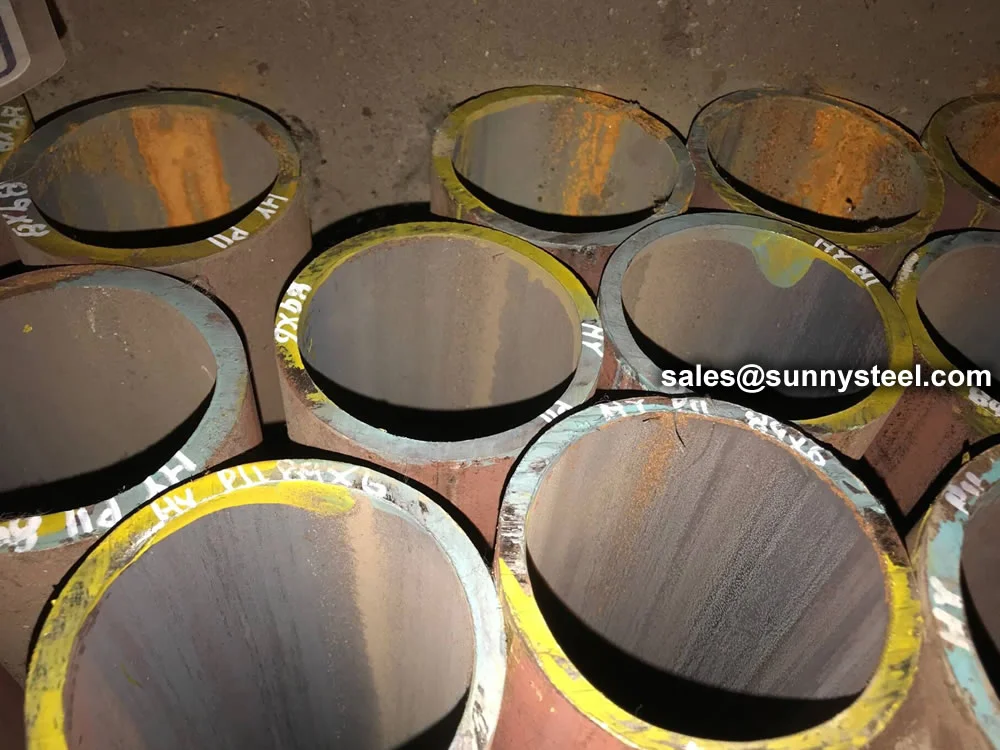
Astm a335 p11 alloy steel pipe delivers strength a...
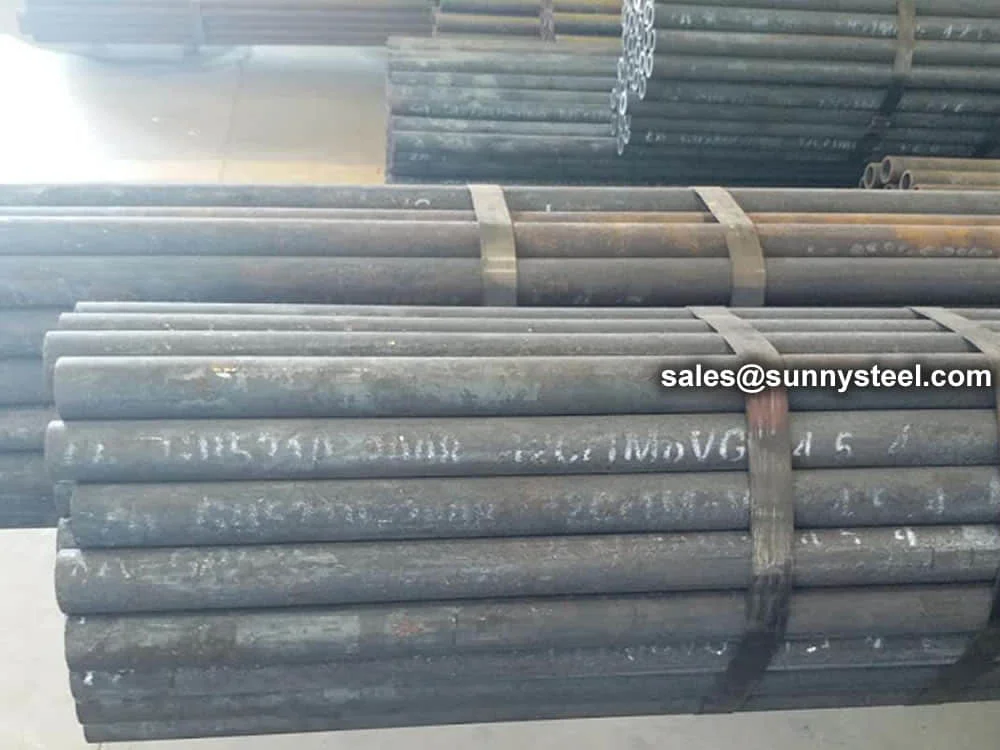
12cr1movg seamless pipe offers high-temperature st...